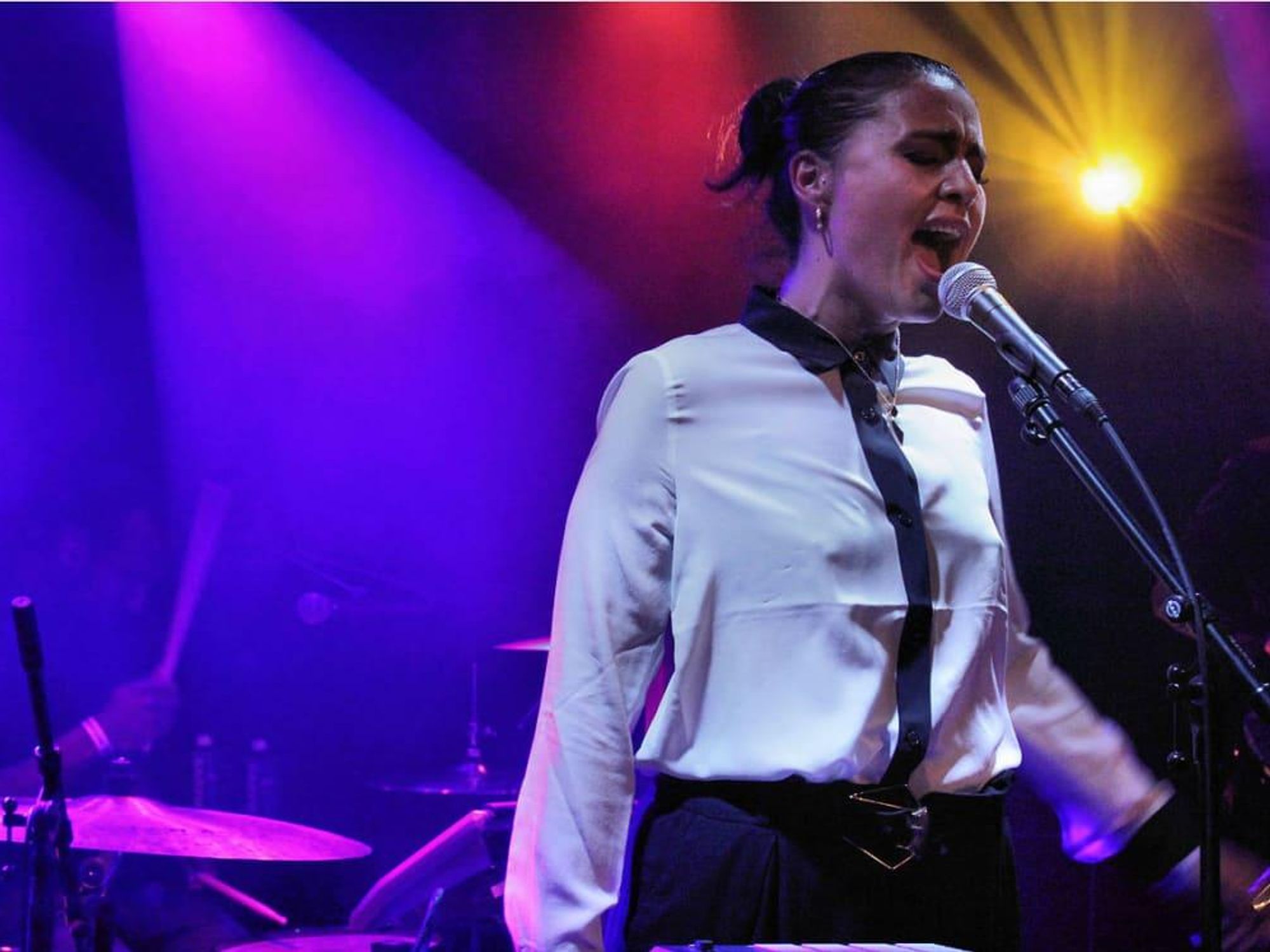Jessie Ware Takes Center Stage
Heading into her first Austin show, Jessie Ware talks Devotion, womanhood and stepping into the spotlight
The phrase most attached to Jessie Ware’s singing career is that “it almost didn’t happen.”
In possession of a humility about talents that could have led her in a few directions, Ware might have continued to pursue journalism or remained a backing vocalist and dancer. Instead of holding her back, though, it appears Ware’s humility has been a source of good and careful judgment, empowering her to take certain risks and craft the career of her dreams.
Her first album, Devotion, peaked as a top 10 album in the UK last year and debuted in the US in April. (The video below is for the single "Imagine It Was Us," from the North American release of Devotion.) Ware takes her relationship with her fans very seriously, and using her talent to connect with people is a strong focus for the singer, who last week met with 200 schoolgirls at the Women of the World festival in London.
Ahead of her first visit to Texas, we caught up with Ware while she was in London working on her second album.
"It's an indulgent job! It’s not like I’m saving anybody’s life, is it? It's so much fun, and it doesn't really feel like work."
CultureMap: How has your transition from being a backup singer to being center stage changed your perspective on the audience?
Jessie Ware: I was so petrified when I started, when I became a lead. I was very happy being a backing singer, and I was happy being a dancer because you just jump in during a DJ’s set and jump off. It’s not about you; it’s about the DJ. Now, I can’t imagine it that way, but at the beginning I felt like I was apologizing to the crowd a lot and being like, I’m so sorry. But now, I have a lot of people coming to my shows, and they know me a little better, which I’m very lucky for. I feel so supported by my audiences, as if they’re all encouraging me to do well.
CM: You’ve talked about how your friends have helped you overcome some of that stage fright. How have they helped you?
JW: Yeah, my best friend Sarah, she gets really annoyed with me when I apologize, and tells me I need to believe a little more. And my mom, being the pushy Jewish mother that she is, she would be with me on the whole tour if she could, being like, speak up Jessie! They’re never shy of their opinions, which I sometimes wish I didn’t have to hear, but which I really appreciate.
CM: You’ve said before that you when you were working as a journalist and you were involved with music that you thought becoming a singer full time was an indulgent thing to do. What did you mean by that?
JW: It is indulgent! It’s not like I’m saving anybody’s life, is it? My boyfriend works in a school and is up everyday at 6 o’clock in the morning going to work with troubled children and helps people learn. Then there’s me, singing on a stage — which, don’t get me wrong, I love and appreciate — but you know, I’m not training to be a doctor like my brother or working in the public sector. It’s quite an indulgent job. I’ve just come from my stylist and I was planning my outfits, which is so much fun and doesn’t really feel like work.
"I want the audience to feel like they’ve come to a dinner party. I want them to go back and say, yeah we had a lovely time. I like to think it’s kind of like playing hostess for the night."
CM: The way you talk about your audience, it seems like in some ways you are doing something good, with social value.
JW: Yeah, I mean there’s something really interesting about the audience. I want to know everybody who’s bothered to buy a ticket from me, I want to know who they are and why they want to see me. I think it’s such a magical thing to meet the people who support you, and that interaction is so important to me. I can’t be an entertainer without my audience. I’m completely feeding off of them, and sometimes I forget that I’m at the concert and I think I’m on a talk show or something and I’m asking about how many brothers and sisters they have and what do they do for a living and what did they have for dinner. You know, sometimes I take it too far, but I’m just so surprised that they’re there most of the time.
CM: So really, performing is this way for you to get to know people.
JW: Yeah, and it’s very social. I want them to feel like they’ve come to a dinner party, and you know, it’s not like I can start giving out mini bagels to the audience, but I’m there to entertain and I want them to enjoy their evening. I want them to go back and say, yeah we had a lovely time. I like to think it’s kind of like playing hostess for the night.
CM: One goal you’ve said you have for your music is to always make music that’s feminine. What does that mean for you?
JW: I love being a woman, I love romantic music and I want to feel like a strong woman on stage. That can come from what I’m wearing or what I’m singing about. I very much love the music of people like Chaka Khan, Whitney Houston, Beyoncé. And Sade is my all-time favorite. These are all strong females, and I love that kind of music, I just want to talk about that stuff all the time.
CM: And you see that as deeply tied to being feminine?
JW: Yeah, for me personally, yeah girls are romantic a lot of the time. I listen to so many women, and listening to their music makes me feel fabulous, and I try to create the same feeling in my music. It’s a lot in the lyrics. I don’t think a bloke would say a lot of them, like “you give me the sweet talk.” The voice feels like it’s a female protagonist.
"I love being a woman, I love romantic music and I want to feel like a strong woman on stage."
CM: Before making this album, you’d never written songs before. How did you go about learning to do that and then writing these lyrics?
JW: Oh my god, it was so hard. I’m no Joni Mitchell, I just never regarded myself as much of a writer, and to work on a whole album was very intimidating. But I was working with people who made me feel comfortable and made me feel worthwhile. It was a lot of feeling around in the dark and coming out with a lot of rubbish songs. It took a while, and I had to come out of my shell, but at some point I just got it.
CM: You have a writing credit on all but one of the songs on the album. As a result, do you feel a strong sense of ownership over these songs and the feelings they are about?
JW: I do have a sense of ownership, and I have to kind of remind myself of that. I’m definitely really proud that I can write now. I have no qualms about the way that I got into music, whether it be as a backing singer or a dancer, because I rely on other people to bring me out of myself. I can’t play an instrument, so as much as I’m in control of the songs, I rely on other people’s opinions and talents as well. And I love that.
Jessie Ware performs with Mikky Ekko on Friday, October 18 at Emo’s East in Austin and Saturday, October 19, at Fitzgerald’s in Houston.

